When an endometriosis patient takes the step of having laparoscopic excision surgery to treat their endometriosis, they have often already been through a long journey with many failed treatments. This journey often includes treatments such as multiple rounds of different types of birth control pills, stronger hormonal medications designed to suppress menstrual cycles (such as Lupron or other GnRH agonsists), multiple cauterization or ablation laparoscopic surgeries, and various different complementary alternative medicine approaches.
Most patients who undertake excision surgery after trying many or most of the above, do so on the basis of their own research, since many gynecologists are misinformed about endometriosis treatment, and are not trained to do excision surgery. A recent worldwide consensus paper on the management of endometriosis states that “there is unanimous consensus over the recommendation to excise lesions where possible, especially deep endometriotic lesions, which is felt by most surgeons to give a more thorough removal of disease.” Sadly, there are fewer than 100 surgeons in North America currently practicing expert excision of endometriosis.
Patients come to excision surgery with hope that this treatment will finally bring them relief. And when pain persists or recurs after excision surgery, patients may feel disappointed, hopeless, and confused. However, there are many causes of pelvic pain that are not endometriosis, which can continue to cause pain even after expert excision surgery, and once these other causes are treated, excellent pain relief and relief of other symptoms may be achieved. Although it may be natural after previous surgeries have failed, to assume that endometriosis is still the cause of the pain, if surgery was performed by an expert, it is prudent to rule out other potential causes of pain before assuming that endometriosis continues to be the culprit.
Adhesions After Surgery
Adhesions are a very common occurrence after laparoscopic excision surgery. Adhesions occur in 70 to 90 percent of patients undergoing gynecological surgery. In some cases, adhesions may be present but not cause pain, but adhesions can also cause chronic abdominal or pelvic pain, small bowel obstruction (where the intestines are kinked or twisted, and are partially or completely blocked), female infertility, and more. Adhesions are the primary cause of bowel obstructions and are a common cause of hospital admission for people with a history of abdominal or pelvic surgeries.
Pelvic Floor Dysfunction
Pelvic floor dysfunction is also a common consequence both of endometriosis itself, and of the surgeries used to treat it. The pelvic floor is a group of muscles and other tissues that form a sling from the front to the back of the pelvis. When the muscles are too tight, too relaxed, or a combination of both, it can result in problems with urination or bowel movements, pain with sex, pelvic pain, genital pain, back pain, and/or rectal pain.
Adenomyosis
Adenomyosis is a disease of the uterus, where the inner lining of the uterus (the endometrium) is found within the muscle wall of the uterus. There is no clear association between adenomyosis and endometriosis, but it is possible to have both conditions. Adenomyosis may be underdiagnosed because it is difficult to see using imaging techniques such as ultrasound, and the symptoms overlap with many of other conditions causing pelvic pain.
Interstitial Cystitis
Interstitial cystitis is a disease of the bladder that can cause pelvic pain, bladder pain, urethral and/or vaginal pain, painful sex, urinary frequency and urgency. Some doctors have found a very high association between endometriosis and interstitial cystitis, where many patients have both conditions. This has led to the two diseases being nicknamed “the evil twins.”
Vulvodynia and Pudendal Neuralgia
Endometriosis patients may also be more susceptible to pain syndromes involving nerves in the pelvic area, such as vulvodynia, a condition associated with pain in the opening of the vagina, and pudendal neuralgia, a condition involving pain, burning, and/or numbness in the genital area and rectum. The potential cause and effect relationship between endometriosis and these other conditions is not clear; however, some doctors theorize that chronic inflammation, immune system dysfunction, and neural pathway sensitization may play a role in the development of multiple pelvic pain syndromes.
Not All Pelvic Pain is Endometriosis
Unfortunately, although endometriosis is a painful and often debilitating condition all on its own, in many patients other conditions also contribute to pain and other symptoms. For doctors and patients alike, it can be tempting, once a diagnosis of endometriosis is made, to blame every symptom arising in the pelvic area on endometriosis. However, pain after careful excision surgery can often be caused by one or more of these other pelvic pain conditions, and a correct diagnosis of the underlying cause of the pain is crucial to successful treatment.
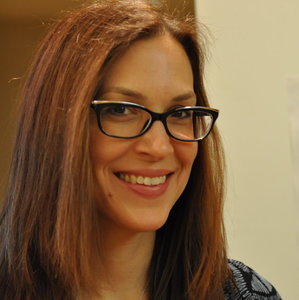

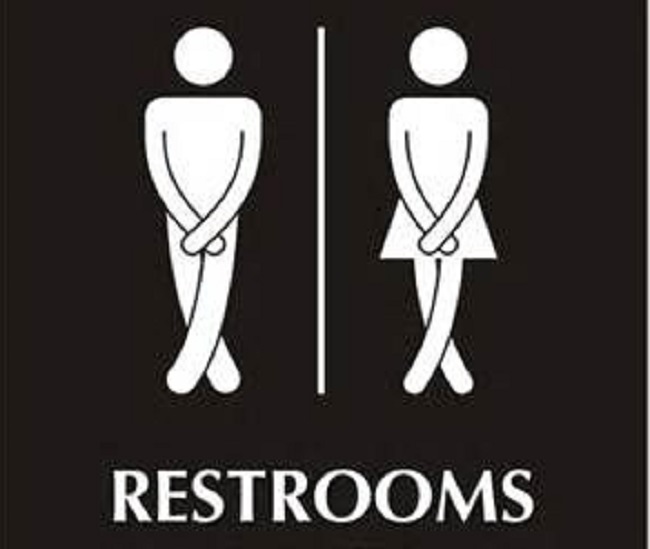
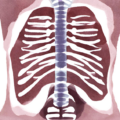
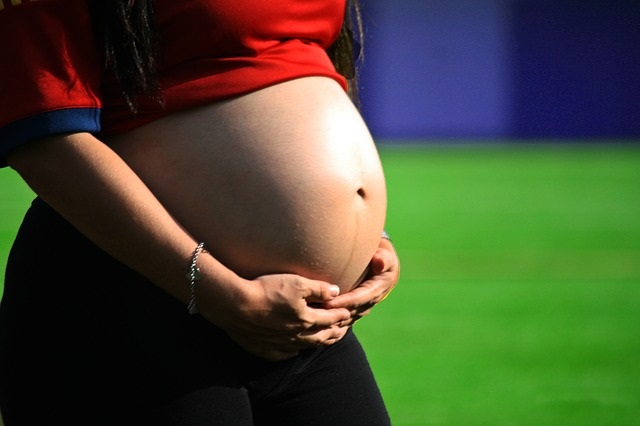





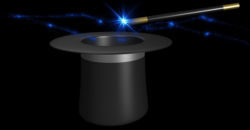

I had a laparoscopic ablation of pelvic endometriosis done back in August. I am 25yrs old. Haven’t had any kids.
My pain has been coming back. I can describe my pain just like everyone has described theirs. I can RELATE so much to you guys. . I just hate being in so much pain it makes me just want to lay in bed all day.
Hello, I had a laparoscopic 4 months ago (endometriosis) but I am having now very sharp like “stabbing” in my pelvic. Is this normal? I had similar pain in my recovery process (first 8 weeks) also I am feeling a bit bloated
Hi Diana, a full recovery can take a while, so this pain may resolve over time. If it doesn’t, I’d return for a follow up with your surgeon to discuss, so that you can start figuring out what might be causing the pain. If you are confident that your surgeon removed all the endo, the pain could be caused by one of the possibilities mentioned in the article.
When you say “adhesion” post excision surgery do you mean scar tissue or more endo adhesions? I am 2 years post excision surgery with a renowned surgeon in Boston. Before excision I had a complete vaginal hysterectomy leaving only my right ovary (tubes/uterus/cervix gone). Did months of pelvic PT. The last 3 months I am full of pelvic discomfort. Every. Day. I’ve had ovarian ultrasounds done thinking I have a cyst. I don’t. I’ve seen a GI doc wondering if it’s bowel issues since there’s constipation or the other. They lumped with IBS which basically means, to me, we don’t know what to do with you. I monthly do a bowel prep like i did the day before my excision surgery so I can go. I have discomfort the shoots from left hip to right hip. Or, right hip and wraps around my back and/or down my thigh. I am bloated from belly button to pubic bone. If I try to “suck it in”, the pain radiates throughout the pelvis. I’m at a loss and frustrated and angry and want to throw in the towel. Any ideas? Many thanks.
It does sound like it could be adhesions. Adhesions are scar tissue, and can be formed after surgery, or by endo itself, but however they are formed, they are the basically the same tissue. If you had a complete hysterectomy with complete excision, it is more likely that the adhesions are due to the surgery itself, unless there was endo missed that caused continued adhesion formation. Have you tried the pelvic PT since having these symptoms? This is a good diet guide that can help with relieving some symptoms if they are caused by bowel adhesions: http://www.clearpassage.com/site-resources/digestive-health-guide.pdf
Hi Erika I believe we both had our excision by the same doctor in Boston. I just had this done a week ago.l and I’m still experiencing severe constant pain post procedure. I would like to connect and know more about the status of your health.
After removal of endometriosis affected uterus &ovary again having the same pain.how to recover?is there any medicinal treatment?please help.
If you are certain that all of the endometriosis was removed when the ovary and uterus was removed, then you can start looking into other causes of the pain. However, it is very common to have incomplete removal of endometriosis at the time of hysterectomy, and the endometriosis will continue to cause pain. You may need to seek a second opinion from a surgeon who sees a lot of endometriosis cases and specializes in the excision of endometriosis.
If you are confident that all the endo was removed, then the next step might be to get an evaluation by a pelvic physiotherapist, and get referrals to other medical specialists who can help you figure out if you have interstitial cystitis, nerve pain, or other causes of pain in your pelvis.
My wife had endometriosis. It has been removed in laparoscopy surgery. After 6 days from surgery she is suffering from same endometriosis pain which she had before surgery. Could you please advice.
It can take a while to heal from surgery (usually, at least 2 weeks, and up to 6 weeks). During that time, you could have pain in the same areas where you had the endo removed. After that time, if the pain is not better, you should follow up with the surgeon to see what they suggest. It is always a good idea to have a pelvic floor assessment after surgery by a trained women’s health physiotherapist also–this could be done 2-3 months after surgery.
Elle, I’m very glad you figured it out and that you are feeling better. Teresa, it’s very important to work with a doctor who can work through all the possible causes of your pain. Perhaps also seeing a physical therapist could be helpful.
Thank you for this–after both ablation and excision surgeries, I was still in awful pain daily and bleeding endlessly to the point of near hemmorage. It took another new doctor with a fresh perspective to find what the first two surgeons had dismissed and missed–extensive adenomyosis. He treated me via meyomectomy to remove the implants rather than perform a hysterectomy and resectioned my uterine lining. Six months later, I am felling better for the first time in years. If something feels wrong, don’ t be afraid to keep pushing and questioning and seeking out additional help–you and the quality of your life are worth it!
May I ask who that doctor was?
I had laparoscopic surgery in 2005 then in 2010 theywe moved everything cuz my endomitriosis came back. Now its 2014 and I’m having severe right lower abdominal pain I now have a back injury with fibromyalgia my doctor now thinks it could be a little endometrioma left or it could be the fibromyalgia very confusing but I will get lower right quad pain the same as I had when I had that big mass on my right side
Hi there. I know this is a super late comment but I am at a loss. Did you ever figure out where you pain was coming from? I had a laparoscopy almost a year ago and have had horrible RLQ pain and burning for the last 9 months. I have gained 30lbs and every doctor I have been to just blames it on my endometriosis. After suffering from endometriosis for so many years I know that this pain is different. I don’t know what else to do. Thank you
If you are confident that your surgeon was able to excise all the endometriosis, in my opinion the next thing to investigate would be to get an assessment from a women’s health pelvic physiotherapist. They will be able to check for pelvic floor dysfunction and maybe also assess your scar tissue and tissue mobility. Another option to look into is a hernia–sometimes they can be very hard to diagnose. Dr. Sallie Sarrel is a women’s health physiotherapist who has a lot of experience with occult hernias–you could look up some of her work on social media.